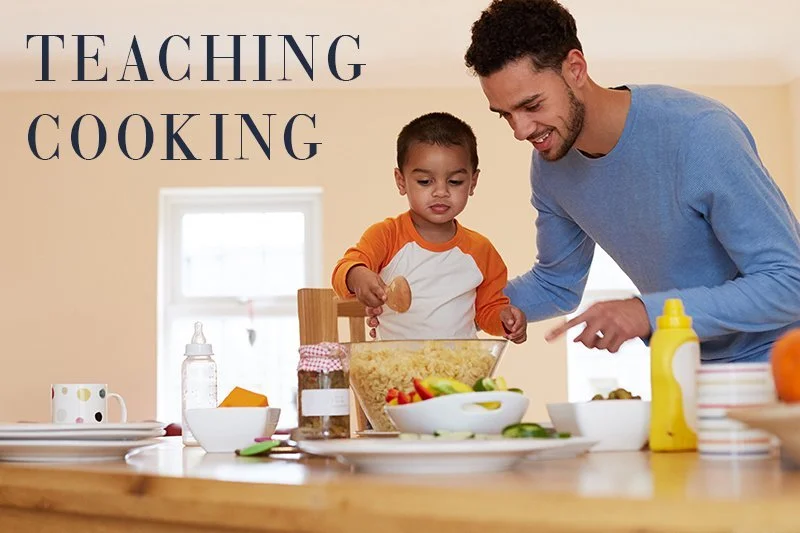Cooking Up Fun: A Guide to Teaching Children the Joy of Cooking
Cooking isn't just about preparing food; it's about fostering creativity, building confidence, and creating lasting memories. When children learn to cook from a young age, they develop valuable life skills while discovering the joys of food and sharing meals with loved ones. So, let's dive into some tips and tricks on how to teach children to cook in a fun and upbeat way!
1. Start with Simple Recipes:
Begin with easy-to-follow recipes that involve minimal steps and basic ingredients. Dishes like scrambled eggs, sandwiches, or simple salads are perfect for beginners. As children gain confidence in the kitchen, gradually introduce more complex recipes.
2. Make it a Game:
Turn cooking into a fun game by challenging children to find ingredients in the pantry, measure ingredients accurately, or set a timer to see if they can finish cooking before it goes off. Incorporating games not only makes cooking more enjoyable but also helps children develop important skills like organization and time management.
3. Get Creative:
Encourage creativity by allowing children to experiment with flavors and ingredients. Let them personalize recipes by adding their favorite toppings to pizzas or choosing their own mix-ins for cookies. Cooking is an art, and giving children the freedom to express themselves fosters a love for culinary creativity.
4. Teach Kitchen Safety:
Safety is paramount in the kitchen, so make sure to teach children basic kitchen safety rules. Show them how to properly handle knives, use kitchen appliances safely, and practice good hygiene habits. By instilling safe cooking practices early on, children can enjoy cooking with confidence and independence.
5. Embrace the Mess:
Cooking can be messy, and that's okay! Embrace the messiness and focus on the fun and learning experiences it brings. Encourage children to take ownership of their cooking space by cleaning up spills and washing dishes. Teaching them to clean as they go fosters responsibility and helps instill good habits.
6. Plan Family Cooking Nights:
Make cooking a family affair by planning regular cooking nights where everyone gets involved in preparing a meal together. Assign age-appropriate tasks to each family member and enjoy the process of cooking and bonding over delicious food. Family cooking nights create lasting memories and strengthen family bonds.
7. Celebrate Successes:
Celebrate each cooking success, no matter how small! Whether it's perfectly flipping a pancake or baking cookies that turn out just right, acknowledge and praise children for their efforts. Positive reinforcement boosts confidence and encourages a love for cooking.
8. Explore Different Cuisines:
Expose children to a variety of cuisines from around the world to broaden their culinary horizons. Try cooking dishes from different cultures and explore new flavors and ingredients together. Learning about diverse cuisines fosters appreciation for cultural diversity and encourages adventurous eating habits.
9. Grow a Kitchen Garden:
Get hands-on with cooking by starting a kitchen garden together. Plant herbs, fruits, and vegetables that children can care for and harvest. Incorporating homegrown ingredients into recipes teaches children about where food comes from and encourages a connection to nature.
10. Have Fun!
Above all, remember to have fun! Cooking should be an enjoyable and rewarding experience for children and adults alike. Embrace the mess, laugh at mistakes, and savor the delicious results together. The kitchen is a place for creativity, laughter, and making memories that last a lifetime.
Teaching children to cook is a gift that keeps on giving. By nurturing their culinary skills and fostering a love for cooking from a young age, you're empowering them to become confident, capable, and adventurous in the kitchen and beyond. So, roll up your sleeves, put on your aprons, and let the culinary adventures begin! Happy cooking!
